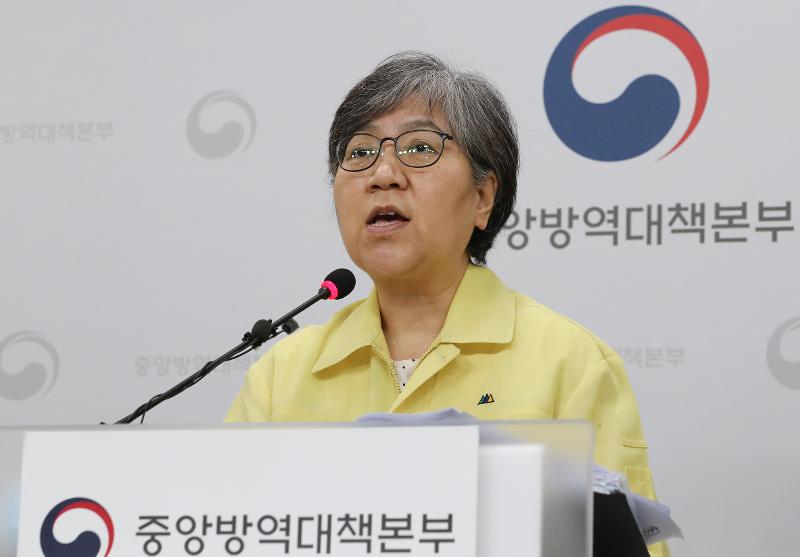
To strengthen national capacity to respond to infectious diseases, the Korean Centers for Disease Control and Prevention (KCDC) from Sept. 12 will be expanded to the new Korea Disease Control & Prevention Agency (KDCA). The photo shows KCDC Director Jeong Eun-kyeong, who will head the new agency, on Aug. 21 speaking at the daily media briefing on COVID-19. (Yonhap News)
By Xu Aiying and Yoon Sojung
The Korean Centers for Disease Control and Prevention (KCDC) on Sept. 12 will be reborn as the Korea Disease Control & Prevention Agency (KDCA) under the leadership of KCDC Director Jeong Eun-kyeong, who has spearheaded the country's successful response to COVID-19.
The Ministry of the Interior and Safety said a Cabinet meeting on Sept. 8 approved the reshuffle of the organizational structure and affiliates of both the KDCA and the Ministry of Health and Welfare.
The revamp means that the KDCA will supervise the entire disease control process ranging from monitoring and responding to infectious diseases to supporting research and development (R&D) for disease prevention and developing vaccines.
To maintain focus on responding to infectious diseases, the new agency will see a 42% boost in personnel. Thus the KDCA will have a combined 1,476 staff including 438 at headquarters, with a director, vice director, five bureaus, three high-ranking officials and 41 teams.
Affiliates will include the Korea National Institute of Health, National Institute of Infectious Diseases, Disease Management Center, National Tuberculosis Hospital and national quarantine stations.
The KDCA headquarters will feature a 24-hour control center to monitor crises; a crisis management and analysis official to collect and analyze data on infectious diseases; a medical safety bureau in charge of vaccine supply and safety management; and an official assigned to prevent health hazards in everyday life.
The KDCA's launch is part of the government's effort to boost national capacity in health and medical R&D. A new team for research management and control will be launched within the Korea National Institute of Health, and the institute affiliate Center for Infectious Diseases Research will also be expanded and reorganized as the National Institute of Infectious Disease with 100 staff.
For a more systematic response to infectious diseases by region, the government will build disease control centers in five areas -- Seoul and vicinity, the provinces of Chungcheongnam-do, Chungcheongbuk-do, Gyeongsangbuk-do and Gyeongsangnam-do, and the Honam area comprising Gwangju and the provinces of Jeollabuk-do and Jeollanam-do.
xuaiy@korea.kr